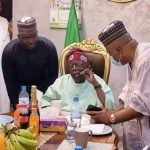By Ademola Yaya
A political party is an organised group of people who have same ideology or political reorientation and seek to capture political power via an election so as to implement its set of principal goals also known as programmes and policies in public office. In a democracy, with the exception of where independent candidature is allowed, political parties are the players. They are the ones being voted. Their candidates are mere policy executioners in government. Hence, the party is supreme, if only theoretically in Nigeria’s distorted scheme of things.
Consequently, political party formation, composition, ideology, commitment and orientation, among others, have great importance for the kind of government, dividends of democracy, and indeed social reality as a whole that are eventually delivered. Apart from its constitution and manifestos, one of the tests of true democratic credentials of a political party is its membership composition. Membership of a political party is not subject to its whims and caprices but to the supreme constitution of every democratic society which permits unhindered freedom of conscience, association and choices. To that extent, membership of a political party must be open, without hindrance, to all who subscribe to its ideology and programmes and are willing to promote its interest.
There are only two basic instances where membership could be denied: if a prospective member is a proven member of another political party; if a prospective member could not pay a membership registration fee demanded by the party. It is however instructive to state that no popular, progressive and democratic party will impose a membership registration fee that will be prohibitive to students, artisans, market women and men and low income earners. Whenever a procedural provision other than the above seeks to bar entry into any political party, such a party can no longer claim to be a political party but a fraternity or a cult as it violates the rights of individual and the constitution of the society and as such, the procedure must be challenged legally.
In February 2013, as a result of merger of biggest opposition parties like the Action Congress of Nigeria (ACN), Congress for Progressive Change (CPC), All Nigeria Peoples Party (ANPP), a faction of All Progressive Grand Alliance (APGA) and a New People Democratic Party, a brand new party – All Progressive Congress (APC) – emerged. APC was so formidable in terms of its alternative progressive programmes and policies and tested leaders that it wrestled power, in 2015 general election, from the ruling Peoples Democratic Party (PDP) at the national level. Before the takeover of power from it in 2015, PDP was fond of saying it was the biggest political party in Africa with largest traditional membership and would rule Nigeria for 50 years. The truth of the matter is that there is no political party in Nigeria that actually knows its numerical membership, spread and strength as party chieftains – accompanied by their loyal members – do defect to various other parties to fulfil personal political ambition. When and how long has any of them called openly for membership or audited their membership? Here is the bottom-line.
At its emergency National Executive Council (NEC) meeting of 20 June, 2020, the ruling APC inaugurated a 13-man Caretaker Committee/Extraordinary National Convention Planning Committee with the mandate to conduct the convention of the party within 6 months. The Mai Mala Buni, Yobe State Governor, led committee however stated that membership registration and revalidation at the wards is a precursor for the conduct of a credible National Convention for the election of new National Working Committee (NWC) of the party. The proposed nationwide membership registration and revalidation exercise earlier slated for December 2020 had to be postponed till second week of January 2021 because of Charismas and New Year festivities and holidays, which could affect the smooth running of the exercise.
To avail it enough time to actualising its target, the NEC met again to extend the Buni-led committee’s tenure by another 6 months and dissolved all the party executives at all levels. This is a right step in the right direction as this will afford most adults who have never witnessed such an exercise in their lifetime the opportunity. Again, it will serve as a guide to other political parties, especially those who lay claim to having highest membership strength in Africa.
Ahead of the membership registration and revalidation, some political hawks and vultures that have no distinct democratic credentials have been scheming to hoard membership cards for their followers alone on the one hand and edge out mass of the people under the guise of insufficient cards on the other hand. Their political calculation is to largely restrict influx of mass of the people to the party so that they could easily control and manipulate party members especially during direct primary elections. This anti-democratic antic is against the content and the spirit of Section 40 of 1999 Constitution of the Federal Republic of Nigeria as amended. Any politician, from Local Government Chairman to the State Caretaker Party Executive and the Governor who tries to use cultist procedural approaches to limit open membership registration should prepare to contend with legitimate resistance from those entitled to membership but are being unfairly denied. In the final analysis, it would have to contend with series of litigations in the Court of Law as the last theatre where membership entitlement and procedures will be clarified.
A political party like APC, which lays claim to progressive tendencies, cannot afford to fumble or mess up with the party membership registration and revalidation exercise. To write its name in the sand of time, Mai Buni-led Committee must apply iron-cast design to prevent these anti-democratic elements who vainly claim to be democrats and progressives from hijacking open registration procedures with intent to alienating mass of the people from joining the party that they love and to which they are dedicated; which will consequently make it infamous before the people with damning consequences in future elections.










